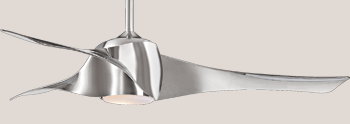Newark, NJ – Patent attorneys for Howmedica Osteonics Corp. Mahwah, New Jersey ![]() and Stryker Ireland Limited of Cork, Ireland filed a patent infringement suit in the District of New Jerseyalleging DePuy Orthopaedics Inc. of Warsaw, Indiana infringed patent no. 6,475,243, Acetabular cup assembly with selected bearing; which has been issued by the US Patent Office.
and Stryker Ireland Limited of Cork, Ireland filed a patent infringement suit in the District of New Jerseyalleging DePuy Orthopaedics Inc. of Warsaw, Indiana infringed patent no. 6,475,243, Acetabular cup assembly with selected bearing; which has been issued by the US Patent Office.
The complaint states that Howmedica and Stryker are joint assignees of the ‘243 patent. The complaint alleges that DePuy![]() is currently marketing two products that infringe the ‘243, specifically the Pinnacle® and Duraloc® Acetabular Cup Systems. The complaint also alleges that by offering these products for sale, DePuy causes or encourages others to infringe the ‘243 patent by creating medical literature and providing training to healthcare providers about its infringing products and methods. The complaint seeks a finding that DePuy’s products infringe the ‘243 patent, an injunction, and damages.
is currently marketing two products that infringe the ‘243, specifically the Pinnacle® and Duraloc® Acetabular Cup Systems. The complaint also alleges that by offering these products for sale, DePuy causes or encourages others to infringe the ‘243 patent by creating medical literature and providing training to healthcare providers about its infringing products and methods. The complaint seeks a finding that DePuy’s products infringe the ‘243 patent, an injunction, and damages.
Practice Tip: The plaintiffs have brought this case in New Jersey District Court against an Indiana company. The complaint states that personal jurisdiction over the Defendant is based upon the “Defendant has infringed Plaintiff’s patent in this district, regularly conducts business within this district, and its activities have targeted this district.” These are fairly generic and non-specific allegations to give rise to personal jurisdiction. If DePuy challenges jurisdiction, the plaintiffs may have to demonstrate more specific facts to successfully establish personal jurisdiction.
Continue reading
 Indiana Intellectual Property Law News
Indiana Intellectual Property Law News


 for dogs available only through a veterinarian’s prescription. Lilly
for dogs available only through a veterinarian’s prescription. Lilly 
 infringed patent no.
infringed patent no. 



